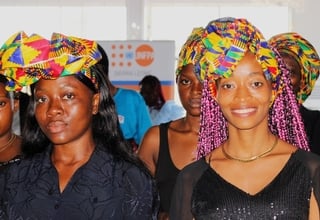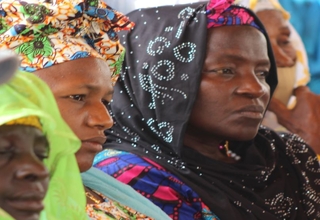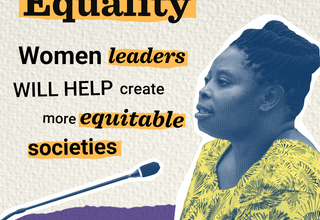Gender equality
Gender equality and women's empowerment in the 2030 Agenda for Sustainable Development is central to the achievement of all 17 Sustainable Development Goals (SDGs), in particular SDG 5, to “Achieve Gender Equality and Empower All Women and Girls”. Gender equality is also a precondition for advancing development and reducing poverty.
A strong emphasis on the human rights, including reproductive rights, of individual women and men underpins all of UNFPA's work. Promoting and protecting human rights requires considerable cultural fluency as UNFPA works in some of the most sensitive and intimate spheres of human existence, including sexuality, gender relations and population issues. Since 2002, UNFPA has emphasised the integration of culturally sensitive approaches into its programmes. In doing so, it has worked closely with communities and local agents of change, including religious leaders and faith-based organisations.
In Sierra Leone, progress has been made in expanding opportunities for women and girls to promote gender equality and empowerment of women. To reflect the commitment of the Government in meeting global obligations, legislative reforms in the following critical areas - as required by the Convention on the Elimination of all forms of Discrimination Against Women (CEDAW) – have been enacted: Domestic Violence Act 2007, Devolution of Estates Act 2007, Registration of Customary, Marriage and Divorce Act 2009, Child Rights Act 2007 and the Sexual Offences Act 2012. A functional National Committee on Gender-Based Violence comprising partner organisations working on the prevention and response to issues of gender-based violence across the country. In 2013 the Government’s Poverty Reduction Strategy Paper III “Agenda for Prosperity” (2013-2018) had a standalone pillar that focused on gender equality and women’s empowerment with gender mainstreamed in all the other pillars.
Nevertheless, gender inequality and denial of women’s rights are still prevalent at all levels in Sierra Leonean society even though the women for 50.8 per cent of the population. Despite the significant strides made, many women continue to suffer marginalisation and discrimination, particularly in the areas of education, employment, political participation, and social justice. Issues of unequal opportunities for boys and girls continue to be exacerbated by factors such as early marriage for girls, teenage pregnancies and harmful practices such as Female Genital Mutilation (FGM). Gender-based violence perpetrated against women and girls continues to be one of the most prevalent and pervasive problems in post-conflict Sierra Leone.
In Sierra Leone, UNFPA works to ensure that programmes at the community level are positioned within and supported by sustainable national level institutions. UNFPA works with the Ministry of Gender and Children’s Affairs – by providing capacity building through financial and technical assistance. We work with local non-governmental organisations, civil society organisations and other development agencies ensuring multi-level coordination to help strengthen the implementation of existing legislation pertaining to gender equality.
Current activities also supported by UNFPA include community mobilisation/sensitisation and demand creation activities for family planning, reproductive health and fistula services. Awareness raising on relevant legislation involving gender based violence, support to access free legal counselling/representation, and access to medical care for the victims and survivors of gender-based violence are among the key activities. Addressing harmful practices are also covered by raising awareness on both the potential short and longer-term health consequences, human rights violations of FGM, and the negative impact that early marriage and teenage pregnancy can have on the lives of girls and their families.



